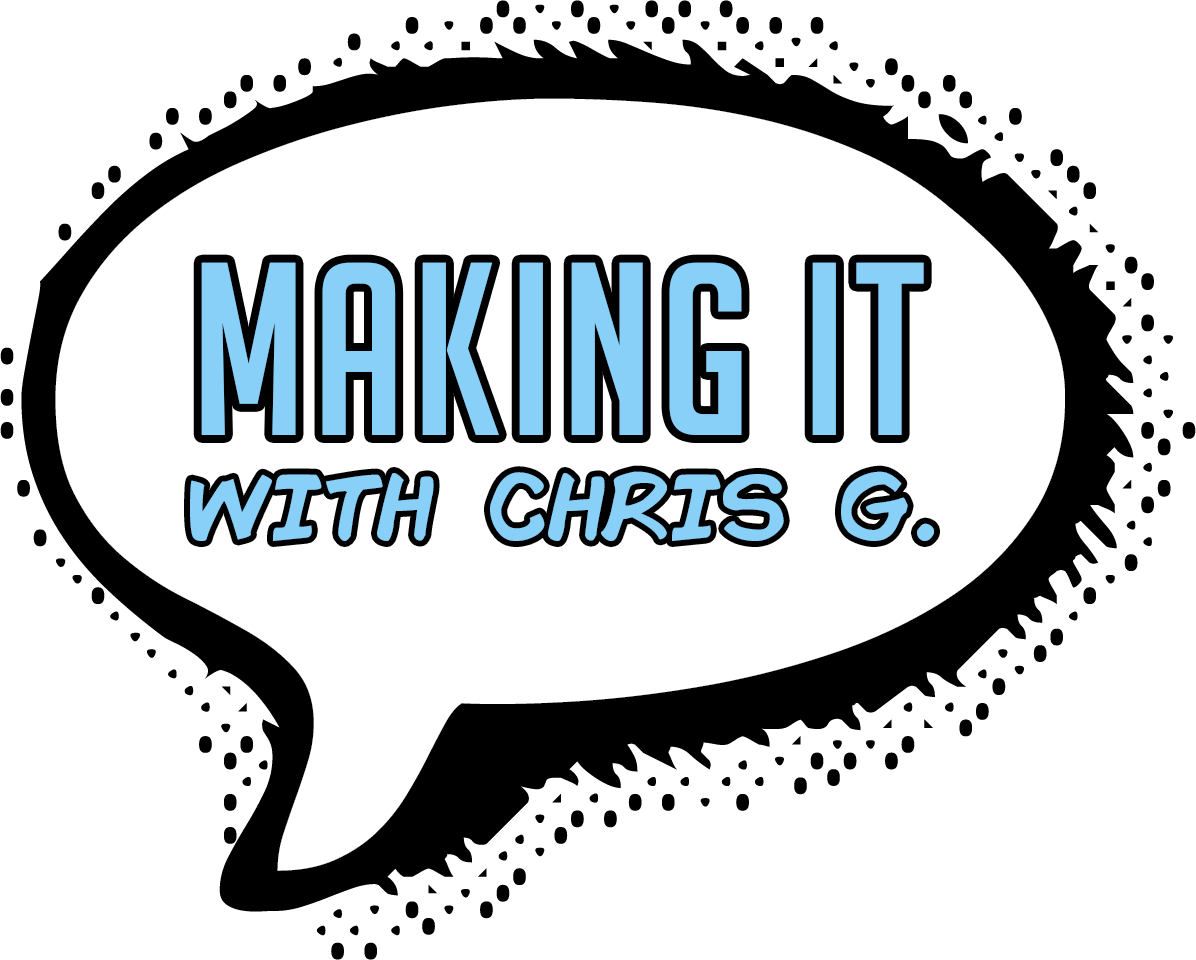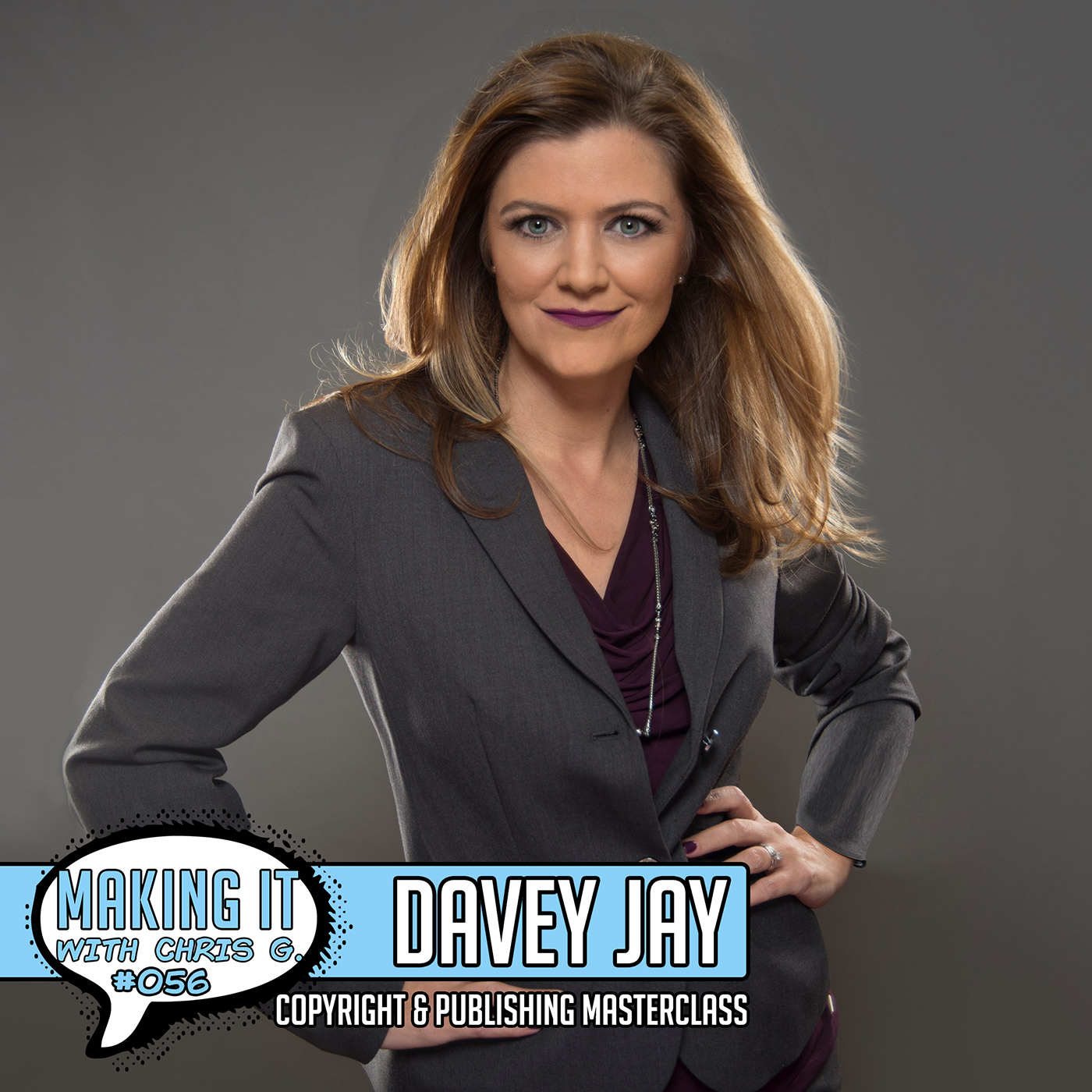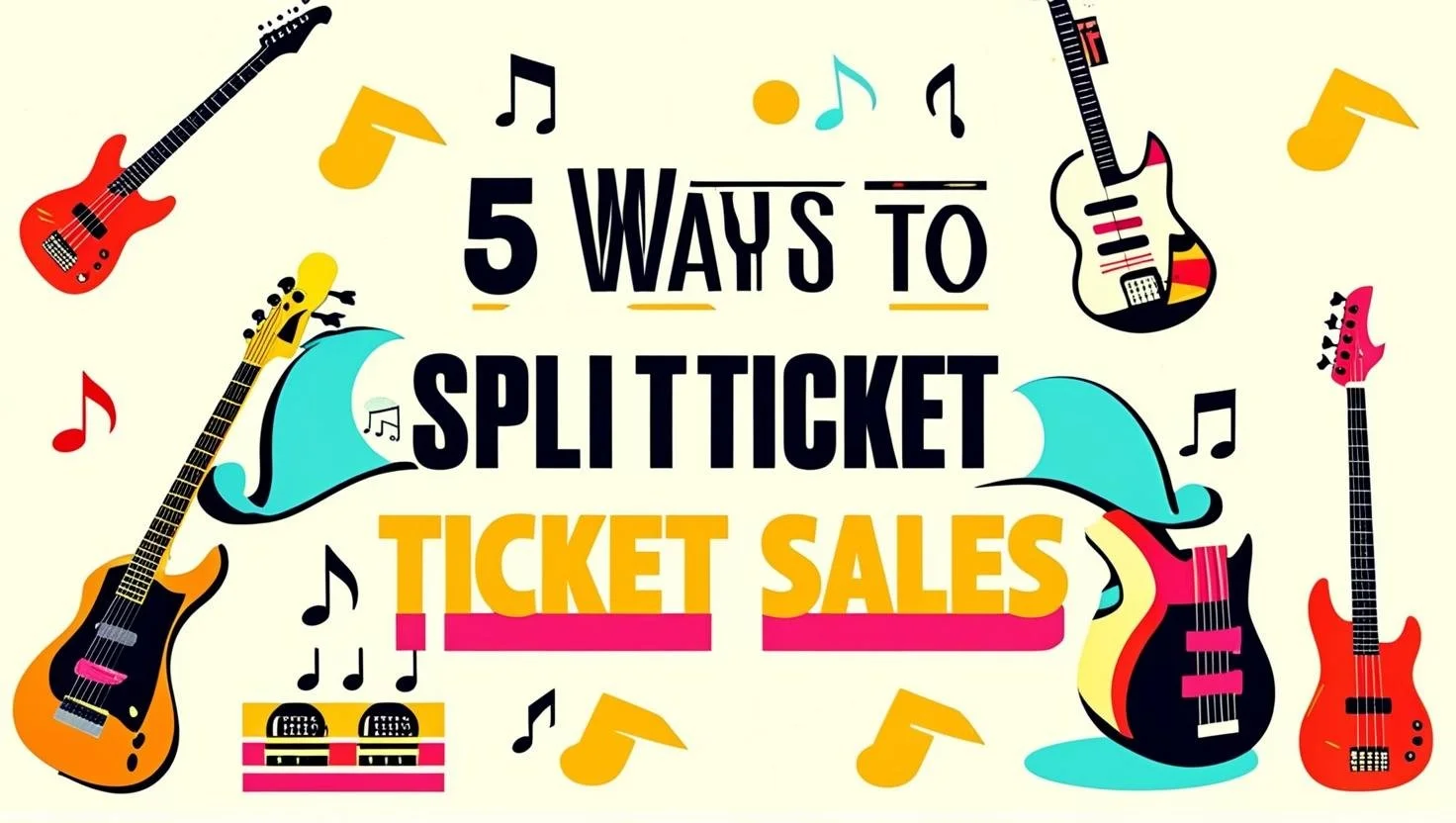Davey Jay - A Copyright & Publishing Foundation Masterclass with Entertainment Attorney Davey Jay
/You can also listen to this episode on iTunes | Stitcher |
Davey Jay returns to the podcast for a copyright and publishing foundation masterclass. In this episode we discuss everything you need to know to get started with building a foundation knowledge of how copyright and publishing works. Davey Jay discusses the benefits of registering your copyright. We cover how mechanical royalties, performance royalties, and synchronization licenses work. Also, you’ll learn which codes you need to obtain to make sure all of your online streams and digital plays are being tracked correctly. The benefits of SoundExchange, and why every artist should sign-up. How do you properly cover or sample a song, and make money from it, and much more.
To learn more about Davey Jay, check out our round one episode on the show, where we discuss how she got started as an entertainment attorney, tips for those wanting to get into entertainment law, common deals, red flags with record contracts, and much more.
A few Copyright & Publishing terms to be familiar with:
Mechanical Royalties: Each time a song is reproduced on a physical or digital recording, the song owner is entitled a payment from the company doing the reproduction. The standard per copy set by the United States Copyright office is $0.091.
Performance Royalties: Every time the song is performed live (by the original artist or a cover), or the song is played on radio, over a jukebox, over speakers at a business, non-interactive streaming and interactive streaming, or any other public setting, the songwriter is entitled a performance royalty fee.
Synchronization License: A song used in sync with video, such as YouTube, Commercials, TV Shows, Video Games, or any other video, the song owner is entitled a payment at a negotiated rate, by the company using the song in their video.
Performance Rights Organizations (PRO's): In the United States, those are ASCAP, BMI, and SESAC. These organizations represent the songwriters and publishers, and collect performance royalties. SOCAN in Canada, and PRS in England.
Two Copyrights for a Song: One for the composition (melody and lyrics), and one for the sound recording (the actual recording of the song, aka the Master). Register at https://www.copyright.gov/.
Harry Fox Agency: Handles mechanical licenses.
Highlights from this Episode
(3:38) Updates since part 1
(4:58) Topics and FAQs in Music Law 101
(6:48) Legal protection for a brand new song
(7:40) Benefits of copyrighting
(9:58) Process for registering songs
(10:58) Types of Copyright
(12:23) Copyrighting Singles/Albums
(13:47) PROs
(16:00) Businesses and licensing
(18:52) Soundexchange
(21:40) Royalty rate
(23:30) ISRC codes
(26:55) Mechanical Licenses
(29:38) Synchronization and Master use Licenses
(33:16) Songs with multiple writers
(36:52) Split Sheets and Collaboration Agreements
(38:09) Publisher share and writer share
(40:14) Benefits of having a publisher
(42:33) Co-publishing deals
(44:19) Advances in publishing deals
(45:02) Record deals and copyrights
(46:25) Cross collateralization
(52:23) Rihanna example
(55:57) Managers
(57:36) When to consult an attorney
(58:45) Band agreements
(1:00:00) Get advice form an attorney
(1:01:09) Choose a superpower
(1:01:49) First album and concert
(1:02:40) Recommended books and documentaries
(1:03:41) Mentors
(1:05:23) Recent Discovery
(1:06:43) Night of drinks with
(1:07:27) Fill-in-the-blanks
Quotes from Davey Jay
“In music law, the facts are very critical”
“As soon as you make an original work of authorship tangible, you have a copyright to it”
“Show people the big stick you’re gonna hit em with”
“Look into what they [PROs] are offering, as far as perks and benefits”
“Different types of streaming generate different types of revenue”
“There’s no set fees for Sync Licenses”
“Joint author and co-owners of the work…share everything equally, regardless of the level of contribution”
“The Appropriate publishing deal is entirely dependent upon where the songwriter is at that point in their career and who the publisher is”
“The publisher split is for any sort of licensing”
“Artists who end up broke is because they weren’t paying attention”
“Write your own music”
“Be careful with managers…they have the power to make or break you”
“When you’re starting a band is best to start with a band agreement”
Links to people, places, and things mentioned
Music Law 101
Will’s Pub Orlando
Lil Indies
U.S. Copyright Office
ASCAP
BMI
SESAC
Soundexchange
RIAA
ISRC Code
ISWC Code
Harry Fox Agency
Rihanna - Diamonds
REO Speedwagon
Safety Dance - Men Without Hats
Salmon Rushdie
Music, Money and Success
Alan Schlesinger
Hank & Cupcakes
Ruth Bader GInsburg
Mikhail Baryshnikov
Robin Williams
David Bowie
Contact
Meehle & Jay Business and Entertainment Law
Phone 407-792-0790
Davie Jay’s Definition of Making it
“Making it is, at the end of the day, feeling that you did good…”
Keep in touch:
chris.goyzueta@gmail.com
www.makingitwithchrisg.com
https://www.instagram.com/chrisgoyzueta/
https://www.facebook.com/makingitwithchrisg
Credits:
Host: Chris Goyzueta (Chris G.)
Producer: Jason Trosclair
Executive Producer: ONElive Creative Agency
Music: Emily Kopp
Show Notes: Manuel Pachamoro









